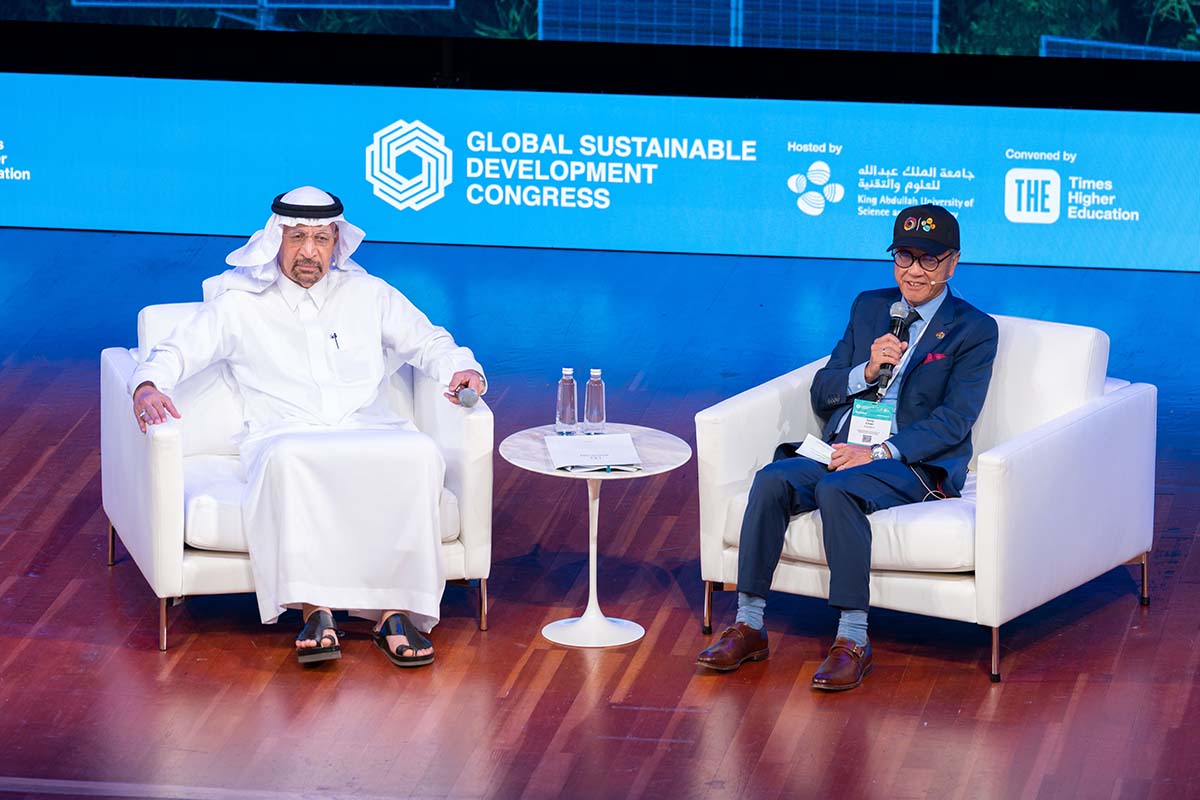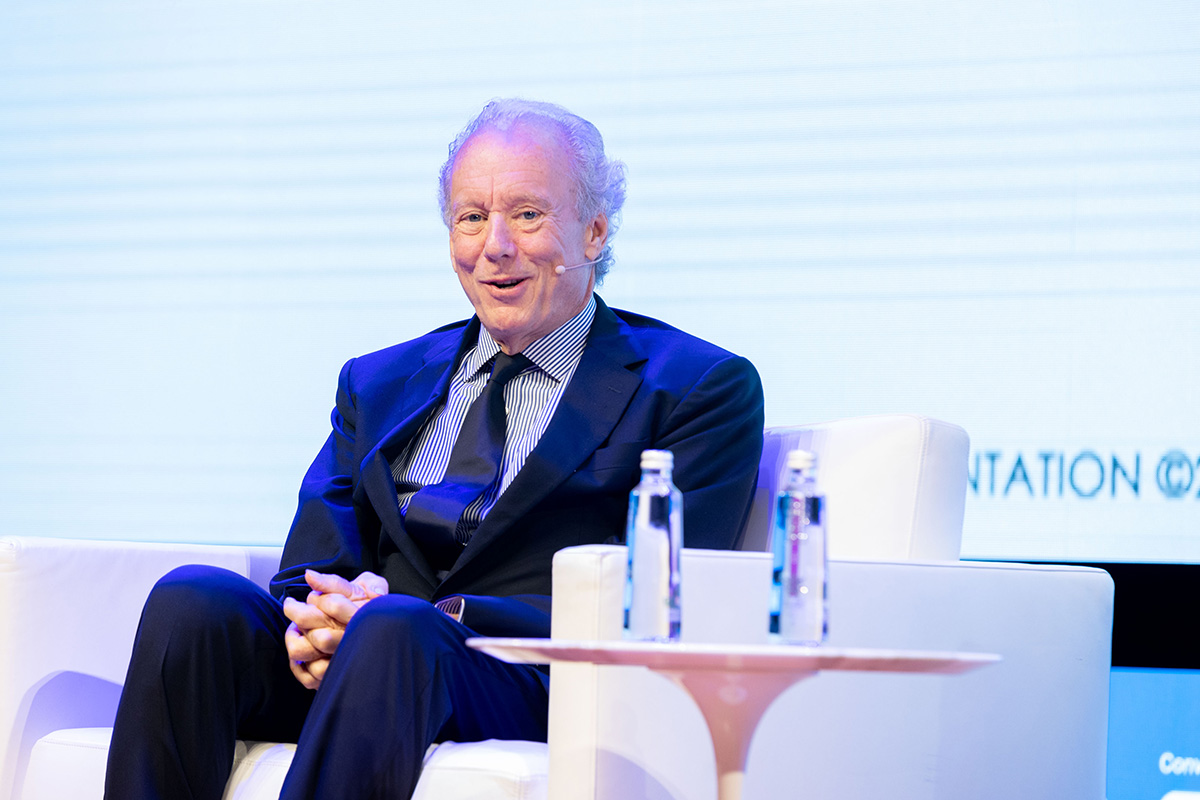538 organizations forge new alliances at TME’s first “Global Sustainable Development Congress” at KAUST

Minister of Investment H.E. Khalid Al-Falih, Minister of Investment speaks with KAUST President Tony Chan at the congress
University presidents, government officials, leading CEOs, and a former NBA star were among the 1,385 delegates who came to KAUST to learn about one of the most pressing matters of our future: sustainability. The Times Higher Education (THE) Global Sustainable Development Congress was the first of its kind to happen in the Middle East, hosted by KAUST from May 29 to June 1, bringing together representatives from 267 universities.
Through the extraordinary reforms the Kingdom is undergoing, Saudi Vision 2030 puts sustainability at the heart of the nation’s policies, such that the Kingdom will become net zero by 2060.
The congress was divided into several themes to discuss how society can meet the United Nations’ Sustainable Development Goals (SDGs), including sustainable cities and communities, sustainable energy and industry, sustainable health and demography, and sustainable environments.
Many Saudi organizations and officials from several leading regional universities, including Prince Sultan University, AlMaarefa University, United Arab Emirates University and Prince Sattam bin Abdulaziz University, attended the congress, as did representatives of the Ministry of Environment, Water and Agriculture (MEWA), the Ministry of Economy and Planning, and the Strategic Management Office.
Among the many distinguished speakers was H.E. Khalid Al-Falih, Minister of Investment.
“There is a great opportunity that must not be missed for the Kingdom and international partners to collaborate. I am optimistic that together we will develop solutions to the challenges that we face,” he said.
Contestants attempting a task at Red Sea Regional.
Chairman of the Islamic Development Bank Group (IsDB), H.E. Muhammad Al Jasser, spoke about the role that KAUST will have for the region to achieve a sustainable economy.
“I would like to emphasize the strong commitment of the IsDB Group to deepen its partnership with the King Abdullah University of Science and Technology,” he said. “Through this strategic collaboration, we will capitalize on KAUST's expertise to create innovative and sustainable solutions to the challenges of economic resilience, green economy transition, and digital applications”.
However, new science and technology are not enough for these SDGs to be realized said KAUST Distinguished Research Professor William McDonough. McDonough, who is regularly invited to international events for his opinions on sustainability and is consulting on the KAUST Circular Carbon Initiative, argued that language and attitude are also important. People must support change because it benefits their lives, not because they fear the end is near.
“Our language [about the environment] needs to be clear and not frightening or guilt-inducing. We keep thinking of carbon as the enemy, but carbon is an innocent element. “There’s durable carbon, living carbon and fugitive carbon. It’s fugitive carbon that we need to be particularly worried about - that’s when we produce something in excess of what we want, like plastics in the ocean,” William McDonough remarked at his keynote talk.

William McDonough at the congress
The opportunity to host the congress allowed KAUST to showcase the global leadership that it and the Kingdom are taking in sustainability. By bringing together so many thought leaders in one place, KAUST President Tony Chan envisions new models in partnerships and education.
“The event delivered bold insights and enabled delegates to forge powerful new alliances. I want the congress to be a call to action, an invitation to global universities to pivot their educational and research programmes towards tangible outcomes,” he said.

